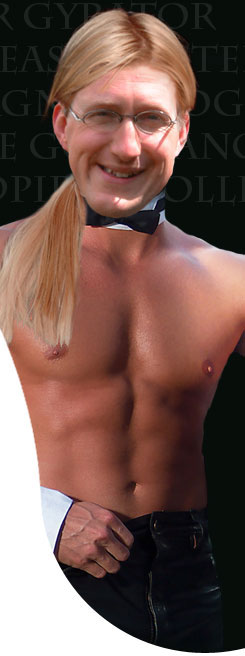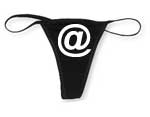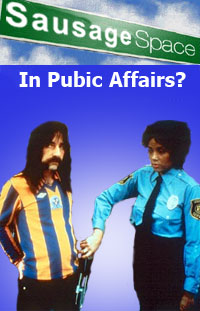Stop Spamming Me, Miss Austen!
 Does it really matter if something is fake these days? Isn’t it enough that something looks real and, more importantly, feels real? I'm beginning to think we should give up trying to seek the authentic. That's ‘old school’ reality. The new reality is as warped as anything found in a Philip K. Dick novel. Even my fingertips tell me what the advertisers want me to feel.
Does it really matter if something is fake these days? Isn’t it enough that something looks real and, more importantly, feels real? I'm beginning to think we should give up trying to seek the authentic. That's ‘old school’ reality. The new reality is as warped as anything found in a Philip K. Dick novel. Even my fingertips tell me what the advertisers want me to feel.
This morning, I was in Bangor's main shopping centre when I went to pop a child’s bubble that had come floating my way down the escalators. I poked at it with my finger, waiting to feel the delicious spray of cool soap fall across my hand, only to see the bubble bounce clear away. I’m embarrassed to say this but I couldn’t live with the disappointment. I couldn’t handle the rejection. So, I chased it. I chased that bubble right across the shopping centre, poking it every couple of steps and finding that it just wouldn’t pop. In the end, I had to ask a security guard to help me corner it by Woolworths where I finally managed to stamp on it, which wasn’t a satisfying end at all. But that’s what happens when reality goes awry. It took me a time to understand that this was an unpopable bubble. There should be a law against such things.
As you can see, I’m now home. Or at least I think I’m home. It’s easy to get confused when you’ve spent a morning with the fakers, the frauds, the charlatans, the insecure, and the existentially indistinct. It’s all been quite dispiriting and I can’t get breasts and bubbles out of my mind. Breasts, bubbles, breasts, bubbles. All I can think about are breasts and bubbles.
Before you ask: you’ll understand my breast fixation soon enough. Just give me time to consider if W.H. Auden ever had such problems with reality. Did he write any poems about breasts or, indeed, bubbles? I’m not sure I’ll ever know.
You might recall that I’d gone out this morning to purchase a volume of his shorter poems. In the end, I decided against buying it once I saw how thin it was. I’ll stick with my English Auden and see how I get on with that. I instead plumped for a complete collection of Wallace Steven’s verse that was tempting me from the top shelf. Mrs. Rust mentions Stevens as a text for next year but I like to be prepared. It’s a bit of a thick volume and I don’t know where to begin, but years of working as a stripper means that I’m a sucker for peeling the cover off a fine looking book.
And it was a handsome volume and in hardback too. In fact, it was so handsome that it put me in the mood to browse some more. That's why I stopped off at W.H. Smiths, intending to spend the last of the tips that had been pushed down my thong last Friday night. And that’s when I began to get seriously confused.
The magazine was stacked next to this week’s issue of The Economist. ‘When Breasts Escape’ proclaimed its headline, printed in the sort of font I really wanted to fondle. I don’t know what happens when breasts escape because I didn’t buy the magazine but it’s been a problem I’ve been considering ever since. So what exactly happen when breasts do escape? From where, exactly, do breasts break out and can we ever say that breasts have truly escaped? If so, what disguise do they adopt? Does it involve trips over the Alps and into Switzerland? And why did Gordon Jackson say ‘thank you’ to that Gestapo officer when he wished him well in English? Okay, I’m really getting a bit confused. There weren’t many breasts in The Great Escape, were there, though I seem to remember Charles Bronson looking quite buxom…
I know now that the headline struck me because it reminded me of a poem we’d read in this week’s FE class. It contained the lines:
And the whole earth would henceforth be
A wider prison unto me
The headline made me began to see what the poet had been saying; that escape is relative. A breast may escape one constricting factor but it is always bound by another, until, ultimately, it must face the fact that it cannot escape being a breast. Simple enough, you might think, but I’d also noticed that the breasts on the cover of the magazine weren’t real. I was in tricky philosophical waters. Did some breasts escape breastdom by becoming fake breasts? Or had they redrawn then boundaries of the language which imprisons them?
All confusing, I’m sure you agree. And that’s before I hit another patch of troubling philosophical waters in the form of Roger Waters.
Abandoning my book buying, I’d walked back to the car, a trip that took me past the local theatre who were advertising a Bee Gee tribute band. Apart from the fake beards, fake hair, fake tans, and a few orthodontic inaccuracies, they were the spitting image of the brothers Gibb. When I got home, I’d look them up on the internet and came across hundreds of tribute bands. My favourite title had to be ‘The Clone Roses’ but for their sound, the winner was Think Floyd.
Think Floyd sound quite like Pink Floyd. They sound like the band on a night when Waters and Gilmour had probably argued over the Pringles. But it begs the question: does it really matter that Think Floyd – or ‘The Think’ as I like to call them – are not Pink Floyd? Do we really need the real Roger Waters now the classic songs have been written? In a way, Think Floyd are better than Pink Floyd. They won’t get tired of playing the classic tracks. They won't feel the need to change the key of ‘Money’ or give it a samba beat. Are the fake Pink Floyd like fake breasts? Are they closer to ideal they pretend to be?
I was beginning to see light. Perhaps fake things are good. Fake bubbles, fake breasts, and fake Pink Floyd.
And fake spam. I forgot to mention fake spam.
I got home to find more Japanese spam in my inbox. Japanese spam has lately been causing me considerable trouble. I can never bring myself to delete it. How can I to be sure it doesn’t contain something important? Of course, my normal spam is usually computer generated gibberish but there’s no way of knowing if this Japanese spam is from a fake Japanese. It might not even make sense in Japanese. So, is it Japanese email, Japanese spam, or fake-Japanese spam? I pondered this for a while. And then I received more spam. This time it wasn't in Japanese. It contained random extracts from Emma. It began ‘Such was Jane Fairfax's history’ and then had an ad for Viagra before -- how ironic -- jumping to the end of the novel and telling me about the chaste ending.
And suddenly, it all became so clear. My whole day made sense!
Since I’m no fan of Jane Austen, this email was actually a huge improvement over the original. It had everything that Emma doesn't have: a brief beginning, a bit of sex in the middle, and a brief ending. It could also be read in a single sitting without my wanting to open a vein. It was a sobering lesson. Fakes are so much better than the original.






1 comment:
LOL! I want that spam mail. Pride and Predujice bored me to bits. Hmmm... am I thinking of another Austen? Geez, they were like clones of the early 20th century writing world weren't they?
Post a Comment